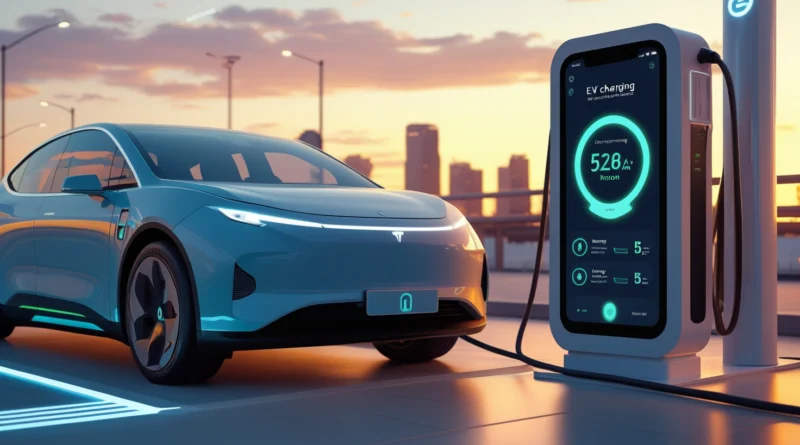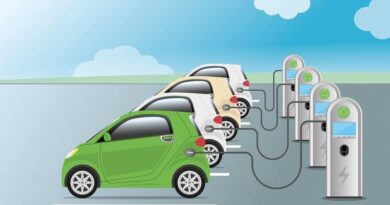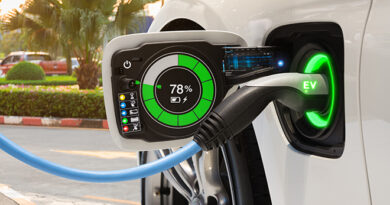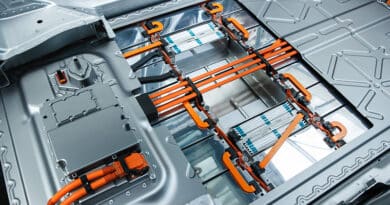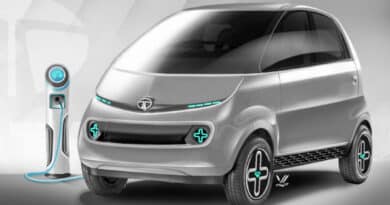EV charging apps: What is the difference?
Whether you are charging your automotive reception or employing a public charging station, electric charging usually goes hand-in-hand with a charging app on your smartphone. However, there are completely different charging apps out there with different functions, features, and use cases. However are you able to differentiate between them?
Table of Contents
1. Public energy unit charging apps
The type of energy unit charging app the general public have faith in 1st may be a public charging station finder. These apps in the main carry with them a map that shows all the charging points in an exceedingly given space and includes details like the kind and range of charging stations. Many alternative public charging apps will be downloaded either free of charge or for a little fee.
Of course, alternative apps like Google or Apple Maps may also show charging stations around you. However, these services typically miss plenty of necessary details once you’re charging on the go, like the standing of a charging station and whether or not it’s accessible, creating them a less reliable possibility for designing journeys.
Real-time accessibility
A crucial piece of data once driving electrical, particularly on long-haul visits, is the accessibility of a charging station on your route. Having to attend for the previous user to end charging may add significantly beyond regular time to your journey. Even with a quick charging station, it takes a minimum of 15-20 minutes, therefore knowing whether or not a charging station is offered before time is useful for a sleek trip.
Using a charging app, you’ll be able to check {the accessibility|the supply|the provision} of charging stations on your route and determine whether or not they are occupied. If they’re, the app will assist you to notice the closest difference that matches your trip, making certain you don’t pay time expecting charging stations to unlock.
A charging app will facilitate monitoring this side still, rental you recognize once a charging station is out of order. As most public charging stations are connected to the net, they’ll simply send data concerning their standing in a period to the information, which may then update charging apps with the charger’s standing. This way, you’ll be able to be notified if a charging station is out of service before the time and arrange another stop.
Expected prices
While most energy unit drivers charge their car’s reception for everyday use, charging on the go is usually needed for extended visits. Generally, public charging prices quite home charging, because the charge purpose operator usually adds a margin on high of the value of the electricity used. As these take issues between suppliers, it’s helpful to ascertain evaluation prior time to picking out the foremost cost-effective possibility for charging you’re automotive.
A charging app will offer data concerning costs in one bit, permitting you to simply compare costs between charging stations. If you’ve got multiple charging stations on your route and enough vary, you’d be ready to commit to charging wherever it’s a lot of convenient and cost-efficient, instead of stopping to charge at the closest accessible charging purpose, which can not suit your desires.
Charging prices are notably relevant if you’re getting to use DC charging, because it may be considerably a lot of expensive than slower AC charging. By checking beforehand, you’ll be able to avoid any surprises.
Charging speed
Of course, charging speed is another key individual between charging stations. whereas an associate degree, AC charging station will typically charge an automotive in an exceedingly few hours, reckoning on the ability output, a DC quick charger is also ready to charge an associate degree energy unit up in as very little as a quarter-hour.
Both have their benefits, and also the best charging speed depends on your desires at a given moment. no matter what one you choose, a charging app will create it significantly easier to search out a charger with the desired speed. Indeed, some apps permit you to look for charging stations with particular power output, making certain it suits your desires.
Charging expertise and reviews
Beyond practicalities, a couple of charger practicality, another useful feature of a charging app is the chance to ascertain alternative energy unit drivers’ expertise with a particular charging station and skim reviews. In doing, therefore, you’ll be able to discover aspects of a couple of chargers that will not be obvious otherwise: for instance, whether or not there are continual issues with a charging station or what reasonable services that location offers.
This is a helpful thanks to getting a pity a location and guaranteeing its amenities that meet your desires. Going back to the instance of a long-haul journey, you would possibly wish to make sure that the charger’s location can have restrooms, hawking machines, or a cafe, to call a couple.
2. Home energy unit charger apps
Besides public charging apps, which in the main function are a tool for locating charging points, home charging apps provide you with management over a charging station in an exceedingly domestic setting. it’s generally provided by your charging station’s manufacturer and designed to figure along with your charger.
Like public charging apps, these apps change insight into the charging method and permit you to ascertain the standing of a charging session, manage your charger’s electricity consumption, gain insights and collect information concerning energy usage.
In turn, a home charging app offers you management over your charging station by permitting you to manage several of its options with a faucet on your smartphone. for instance, you’ll be able to remotely begin and stop the charging method, receive notifications once your energy unit is completed charging, schedule charging sessions, set reminders, and track electricity consumption in a period.
All these options become helpful for owners World Health Organization would like to schedule charging, for instance, to avoid charging throughout peak hours, once the electricity (usually) prices the foremost, or to avoid powering several appliances at constant time.
Dual compatibility of energy unit charger apps
In some cases, a charging app may be wont to manage each public and residential charging, giving drivers the convenience of one app for all their energy unit charging. {this is|this is usually|this can be} often the case for home charging apps that conjointly incorporate a map of accessible public charging stations, permitting users to search out and manage chargers on-the-go still.
3. Charging apps in electrical cars
For most EVs, dominant charging isn’t restricted to associate degree apps on the driver’s smart phone. Indeed, electrical cars generally escort preinstalled code that helps manage charging from among the vehicle, usually in additional precise ways in which than associate degree external app will.
This is a result of this app’s continual human activity with the automotive and may collect period information, that it will use to recommend changes to optimize battery life and charging. for example, it’s going to recommend that the driving force block if it notices that battery use is over-expected and also the variable must be maximized.
Similar to public charging apps, in-car apps may also communicate with charging stations, permitting them to grasp the standing, availability, and prices at a given location. With this data, the app may recommend route changes if the closest charging station is unavailable or add or take away further charging stops reckoning on your driving vogue.
In-car charging apps may also be connected to the energy unit driver’s smartphone, permitting them to receive data and management charging remotely, equally to home charging apps.
FAQs
EV charging apps help EV drivers find nearby charging stations, check real-time availability, monitor costs, track charging progress, and manage home or public charging sessions directly from a smartphone or in-car system.
Public EV charging apps primarily help users locate and navigate to public charging stations, showing availability, speed, and cost. Home charger apps, often provided by the charger manufacturer, allow users to schedule, monitor, and manage charging sessions at home.
Yes. Most reliable charging apps provide real-time information on station availability, operational status, and pricing — helping drivers plan the most efficient and cost-effective charging stops.
Not all do. However, some apps offer dual compatibility, meaning they can manage both public and home charging from one interface, which is convenient for frequent EV users.
In-car apps are integrated into the vehicle and can offer more precise, real-time data like battery status and optimized route suggestions. However, mobile apps often provide broader functionality, remote access, and a better user experience when outside the vehicle.

